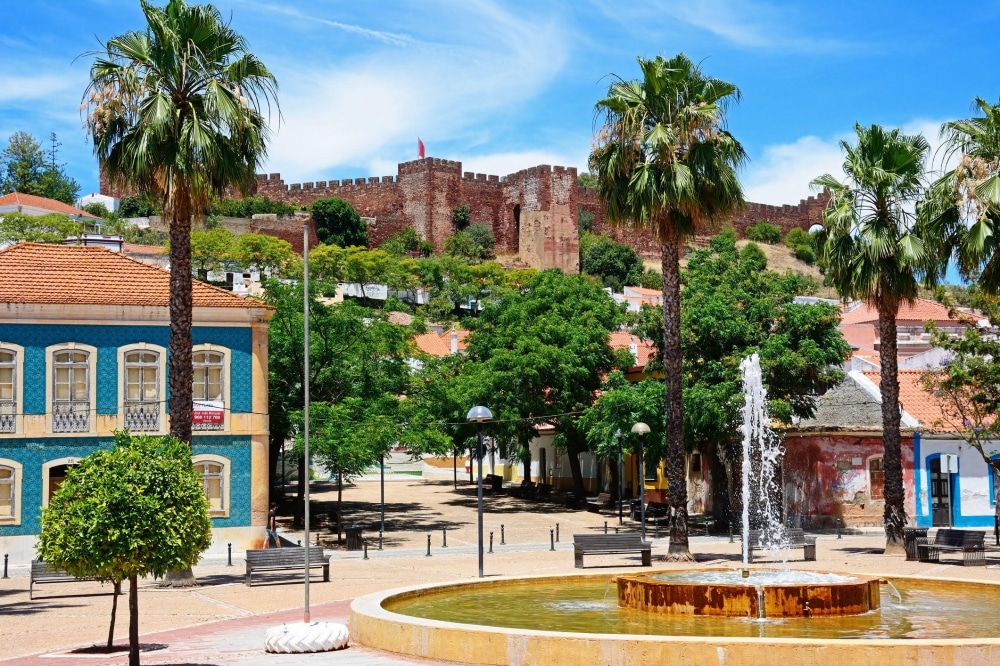The Algarve has more sunny days each year than California, and in the bone-dry summer months it can seem as if the whole of Europe is catching a tan on the magnificent sandy beaches of Albufeira.
In many people’s minds, the region means two things: sunshine and golf. But Algarve tourism bosses are on a mission to make it a year-round cultural destination.
And for those who are seeking tranquility, it’s good to visit out of season. In spring, almond blossom creates fragrant snow clouds of white petals and orchards are bright with citrus fruit.
This unique experience will live far longer in the memory than noisy bars and crowded beaches
It’s easy to hire a car or motorbike and move around unhindered by August’s intense heat and traffic gridlock. Travelling 50km westwards from Faro, popular resorts give way to crumbling, iron-stained cliffs, and expensive private villas constructed on land now protected from further development by strict planning regulations.
A discreet lane through a nature reserve leads to my hotel, the Suites Alba Resort & Spa, owned by footballer Luis Figo. The place is half-deserted and, wandering alone along the cobbled paths of the brightly painted, low-rise complex, I feel as if I’m on a movie set.
A brush with the past
The place has history in abundance: the Moors were here for 500 years, and the Romans before them. At Silves Castle, I examine the recently excavated ruins of a Sultan’s harem, complete with eunuch quarters, a tiny herb garden, a hammam and the ladies’ primitive but functional toilet. (Lavatories of similar design, I’m amazed to hear, were used in Portugal until the 1950s.)
At Lagos, from where the earliest European explorers set out to map the rest of the world, you can still see the bases of the stone columns which once formed Europe’s oldest slave market, dating from the 15th century. A small museum commemorates victims of the trade.
Simple and sophisticated
Local cuisine blends fine dining with culinary traditions. At Veneza restaurant and wine cellar (restauranteveneza.com) in Mem Moniz, I eat food ‘as grandma made it’ – a crab laid out nakedly and without pretension on a platter, followed by a bean soup pungent with chorizo.
At Estamine (estamine.pt) on the uninhabited Ilha Deserta (Desert Island) in the Ria Formosa lagoon and wetlands at Faro, gastronomy combines seamlessly with eco-tourism. An exhilarating speed boat trip ferries me to lunch at a wooden-decked restaurant powered by solar energy.
The seafood-based menu is garnished using island herbs such as marsh samphire. Ecologist Thomas Santos offers guided tours, explaining above noise of the crashing waves how the island came into being and how plants stabilise the dunes.
Artisan arts and crafts
“Culture is more than concerts,” I’m told by Joao Silvestre Ministro, general director of Proactivetur, a Loule-based responsible and cultural tourism consultancy. It’s a phrase I hear more than once from Algarvians, keen to protect their heritage.
In 2010, a project linked artisans with contemporary designers to revive interest in traditional crafts. Wandering the narrow alleyways of Loule, you can admire groups of women weaving palm baskets, or watch a coppersmith bashing the dents from a cataplana – a pot that gives its name to the fish stew which is cooked in it. Practical workshops are also available to visitors (in2south.pt).
A far cry from the crowds
The region has an impressive live music scene too. This is the third year of 365 Algarve, a generously funded arts programme that runs from October to May.
For its haunting strangeness, I will not forget a dance work at Monchique, a mountain settlement of ear-popping altitude run by enthusiastic mayor Rui Andre, who is also an art teacher.
After a long walk to an abandoned hamlet, amid stone ruins that smell of woodsmoke, we watch Eva Poro #1, an ambitious piece featuring bare-chested men, dogs and horses. Perched high on a rock behind me, a lonely cellist plays and sings her flamenco-inspired compositions into the deep silence.
With the wind whipping at the cork trees, it is a unique experience that will live far longer in my memory than noisy bars and crowded beaches.
How to get there
A two-person suite at the Suites Alba Hotel & Spa starts from 97 euros (£84) per night, with breakfast during the low season. Visit suitesalbaresort.com
British Airways, EasyJet, flybe, jet2.com, Ryanair and TUI all fly into Faro – departures from London, Birmingham, Leeds, Newcastle, Nottingham and Dublin.
For more information on the destination, visit visitalgarve.pt
For details of the 365 Algarve cultural programme, visit 365algarve.pt








